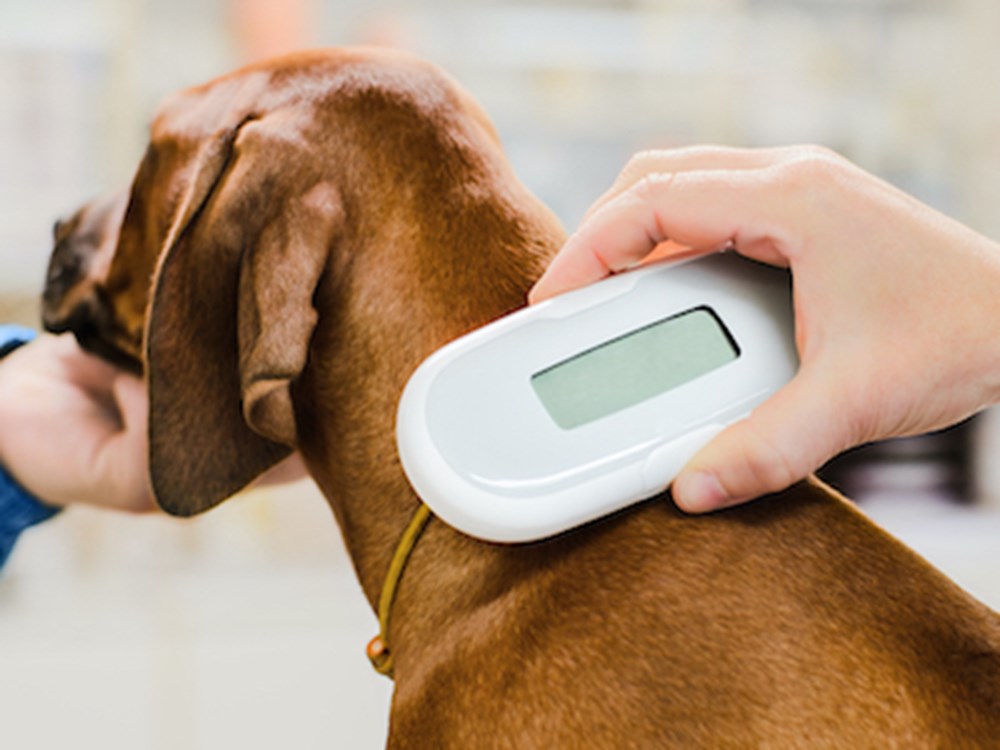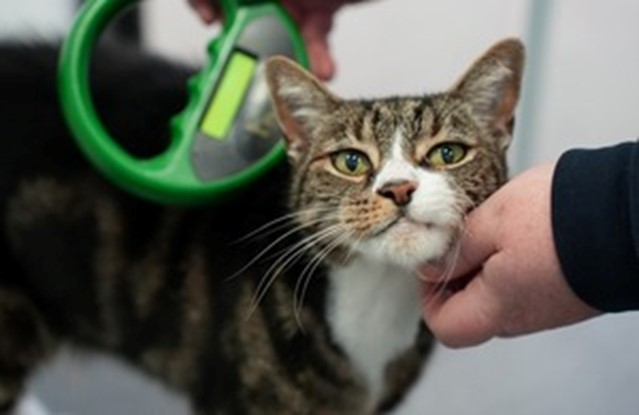Caring for your pet and responsible pet ownership
Contents
Microchipping

(Image 1: credit The Kennel Club https://www.thekennelclub.org.uk/about-us/campaigns/compulsory-scanning/)
It is a requirement under the Microchipping of Cats and Dogs (England) Regulations 2023 for all keepers to ensure their cat or dog is microchipped by the age of 8 weeks old and registered with an appropriate UK database. Puppies must be microchipped and registered to the breeder before being sold.
A microchip is a small electronic chip that is implanted under the skin of a cat or dog’s neck. Each microchip has its own unique 15-digit code that can be read by passing a scanner over the area where the chip has been implanted.

(Image 2: credit .GOV.UK https://www.gov.uk/government/news/cat-microchipping-now-mandatory)
Who can microchip a cat or dog?
- A vet or vet nurse under direction of a vet
- A student vet or vet nurse under direction of a qualified vet
- A person who has been satisfactorily assessed on a training course approved by the Secretary of State for that purpose; or
- A person before the day on which these Regulations come into force, received training on implantation which included practical experience of implanting a microchip.
What information is stored on the microchipping database?
The details that must be recorded on the a database are:
- the full name and address of the keeper;
- if the keeper is also the breeder and their relevant licence number and local authority name that issued the licence
- the original name or identification number given to the cat or dog;
- the contact telephone number (if any) for the keeper;
- the name given to the cat or dog by the keeper, if that is different to the details originally recorded
- the sex of the cat or dog;
- the breed of the cat or dog, or a description if it is a cross-breed;
- the colour of the cat or dog;
- the most accurate estimate of the cat or dog’s date of birth which the keeper is capable of giving;
- the unique number of the microchip implanted in the cat or dog.
Where can I get my cat or dog microchipped and is there a fee?
Cats and dogs can be chipped at your local veterinary surgery for a small fee (around £20 to £30). Some animal charities may be able to microchip your pet for free. Visit the .GOV website for more details.
Neutering
It is recommended by the British Veterinary Association (BVA) to have cats and dogs neutered to prevent unwanted litters and continuation of any genetic defects.
Any individual wishing to have their cat or dog neutered should contact their local veterinary surgery in the first instance to discuss the options for the specific animal.
Duty of care
Any individual that owns or keeps an animal has a duty of care to ensure the animal’s needs are met under Section 9 of the Animal Welfare Act 2006. An animal’s needs include:
- The need for a suitable environment
- The need for a suitable diet
- The need to be able to exhibit normal behaviour patterns
- The need to be housed with, or apart from, other animals
- The need to be protected from pain, suffering, injury and disease

Responsible pet ownership
In addition to the requirements for microchipping, neutering and ensuring the 5 Welfare Needs, responsible pet ownership also includes:
Purchasing your new pet from a licensed breeder
Under the Animal Welfare (Licensing of Activities Involving Animals) (England) Regulations 2018 is a requirement that:
- Anyone breeding 3 or more litters of puppies in a 12-month period or breeding and advertising a business of selling dogs to be licensed.
- Anyone selling animals as pets in the course of a business is licensed
Always ask the breeder to see their Council-issued licence. A reputable breeder must have this available to see/on display and will be happy to show you.
- Always ensure you see your new puppy or kitten with their biological mother and littermates
Never collect your new puppy or kitten from a place away from where they were bred including car parks, petrol stations or laybys.
Control of your dog
An important part of being a responsible owner is keeping control of your dog when in a public place, a private place or your own home. A dog is deemed ‘out of control’ if:
- It injures someone
- Makes someone worried it might injure them
A court may also deem a dog ‘dangerously out of control’ if:
- It attacks someone else’s animal including livestock
- The owner of an animal thinks they could be injured if they tried to stop your dog attacking their animal
If your dog is deemed out of control, there are several different penalties for this. More information can be found on the .GOV.UK website.
Picking up after your dog
Another important part of being a responsible dog owner is picking up after them. Unlike cow faeces, dog faeces can contain a variety of different pathogens which are damaging to the environment and human and animal health, including:
- Giardia
- E.coli
- Salmonella
- Roundworms
Not having a poo bag with you on walks or not seeing your dog fouling is not an excuse. You may be issued a Fixed Penalty Notice of up to £100 if you do not pick up after your dog.